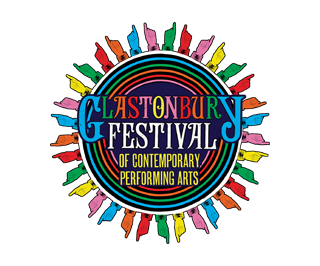‘Love the Farm, leave no trace’, is central to Glastonbury Festival’s philosophy. We are passionate about reducing rubbish sent to landfill and ask Festival-goers to bring only what they need and leave nothing behind. With over 200,000 people on the land during the Festival, it’s very important to minimise the enormous impact this makeshift city has on the countryside on which it stands.
Since 2019, over 98% of all tents have been taken home after each Festival. We are very grateful to our Festival-goers for their continuing respect for the land.
Our work so far:
Waste prevention and recycling.
- Our own on-site recycling plant is the country’s largest events-run facility and ensures we can hand-separate our own waste for single stream recycling.
- From 2019, single-use plastic drinks bottles have not been available to purchase at Glastonbury Festival. Single-use plastic drinks bottles are also no longer supplied or available in any of the Festival’s backstage, production, catering and dressing room areas.
- In a determined drive to reduce non-recyclable waste and promote more sustainable alternatives, the sale of disposable vapes are also banned on-site; and all crisps are sold in compostable packaging.
- We only allow compostable or reusable plates and cutlery – including drinking straws. All cutlery used by market stalls must be made from FSC-assured wood.
- Disposable single-serving sachets, like those used for sauces or sugar, are not supplied or available anywhere on-site.
- All cans, glass, paper, wood and organic waste collected from the Festival’s 15,000 bins are hand-separated and processed at our on-site recycling facility.
- In 2019 Glastonbury Festival recycled over 68 tonnes of paper and card, 38 tonnes of glass, 57 tonnes of cans, 17 tonnes of plastic bottles and turned 14,000 litres of cooking oil into biofuel.
- All bags used to collect compostable food waste are made of compostable cornstarch and processed into compost.
- In 2019 149 tonnes of food waste were turned into compost.
- We have a 1,300-strong army of recycling volunteers who contribute hugely to the clean-up of the Festival site. Without them we wouldn’t be able to achieve our current rate of recycling.
- Since 2014, over 100,000 reusable stainless steel and 9,000 aluminium water bottles have been sold as an alternative to single-use plastic bottles. These were refillable at taps and WaterAid kiosks across site.
- All the bin bags used to collect recycling and general waste are made of recycled plastic which will again be recycled into more bin bags.
Sewage waste.
- There are over 1,200 eco-friendly compost toilets on site which yield over 500 tonnes of horticultural compost every year.
- Glastonbury Festival’s long drop toilets use no chemicals so waste can be treated easily at local sewage works.
What you can do:
Around half of all waste created by Glastonbury Festival is reused or recycled. But with help from you we can do even better.
- Please bring a reusable water bottle. These can be filled for free at our taps and WaterAid kiosks across the Festival site.
- Please only use what you need. If every Festival-goer used four napkins instead of one, there would be an extra 450,000 napkins wasted unnecessarily.
- Please use our recycling bins. It is not okay to drop litter on the ground. Help us by placing your waste into the correct recycling bins.
- Take your tent and equipment home with you. Nothing should be considered disposable so please only bring equipment that is built to last.
- Please avoid using disposable wipes. Even biodegradable wipes, which quickly breakdown into micro-plastics, are problematic environmental pollutants.
